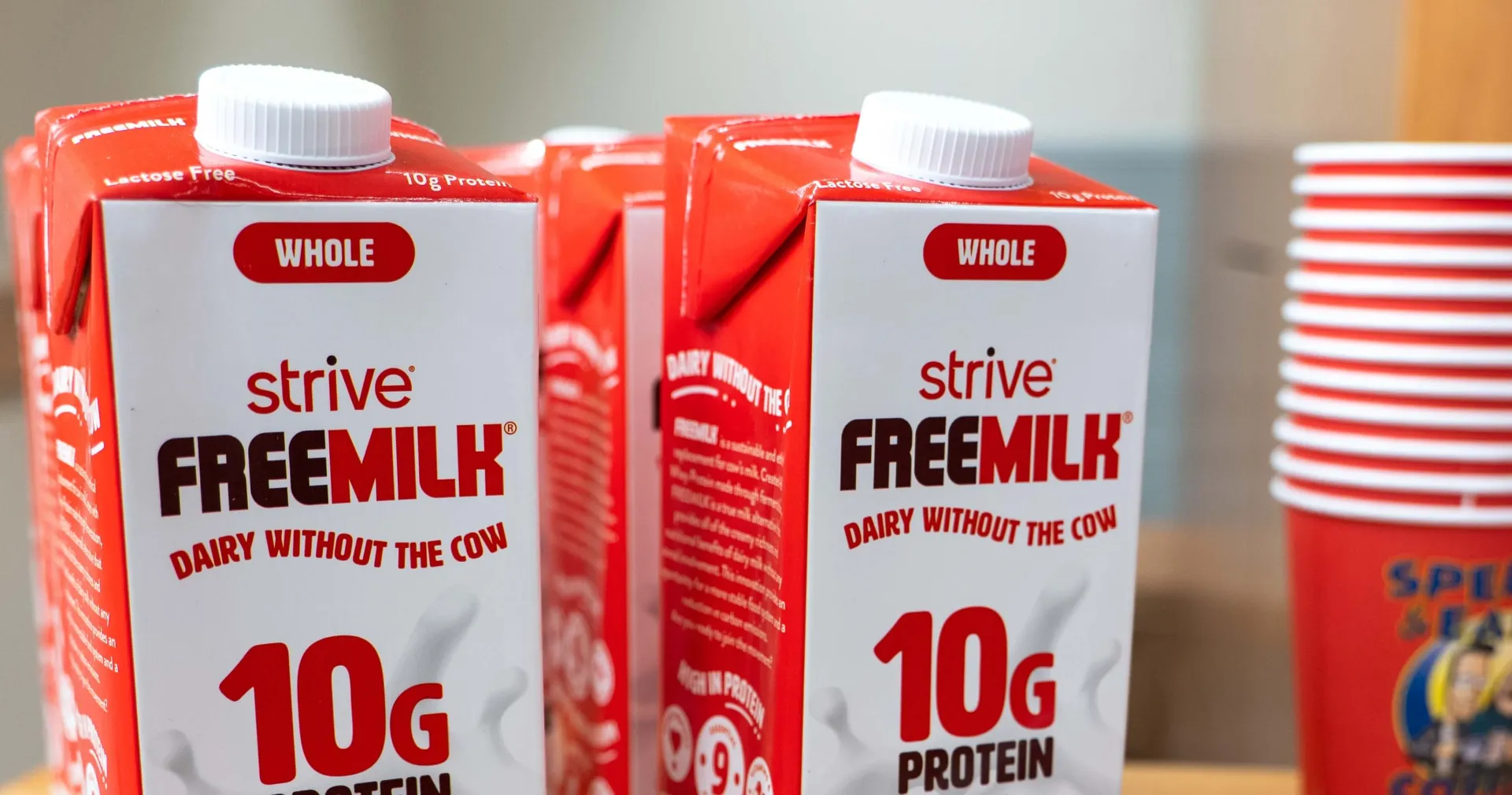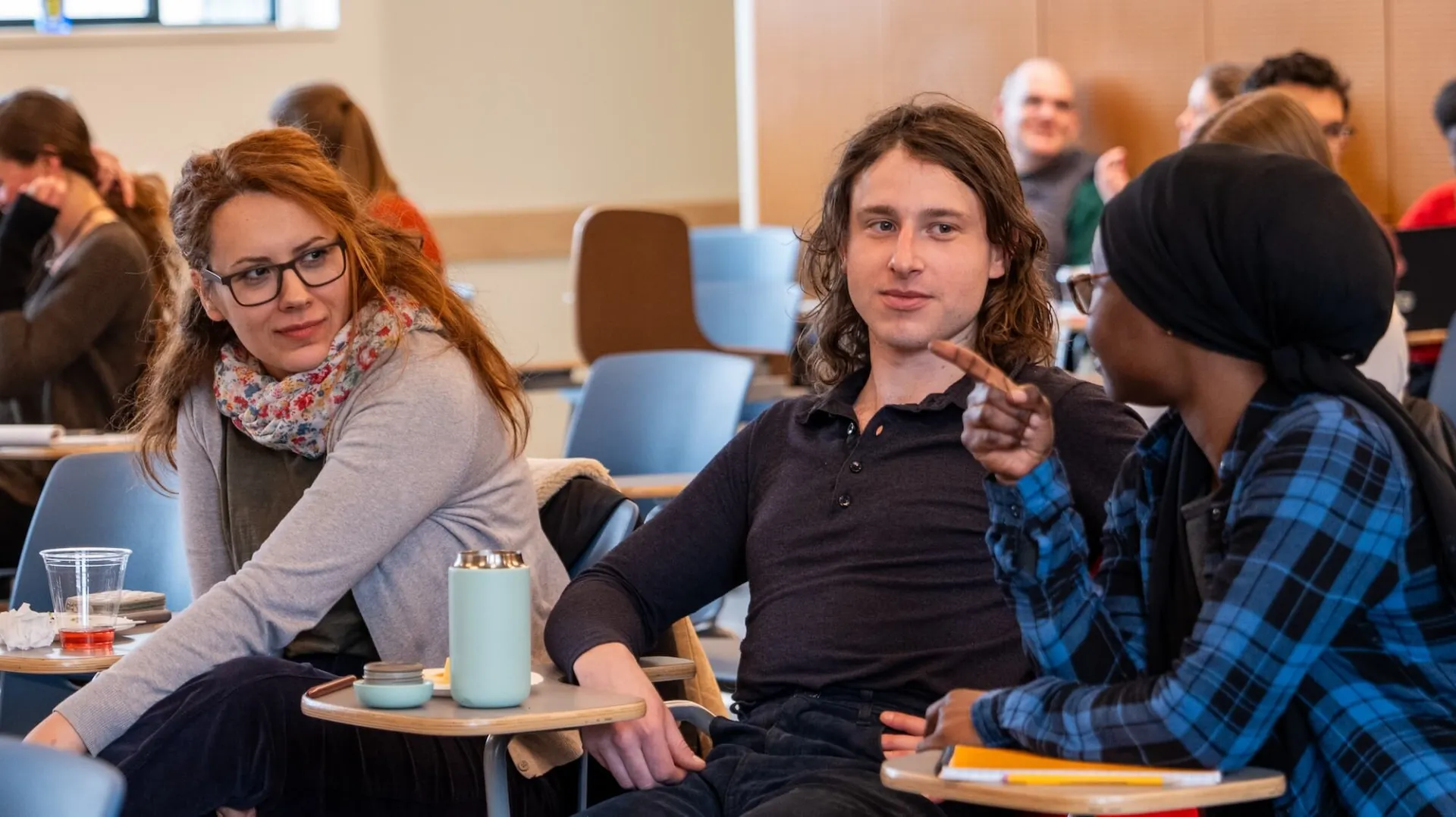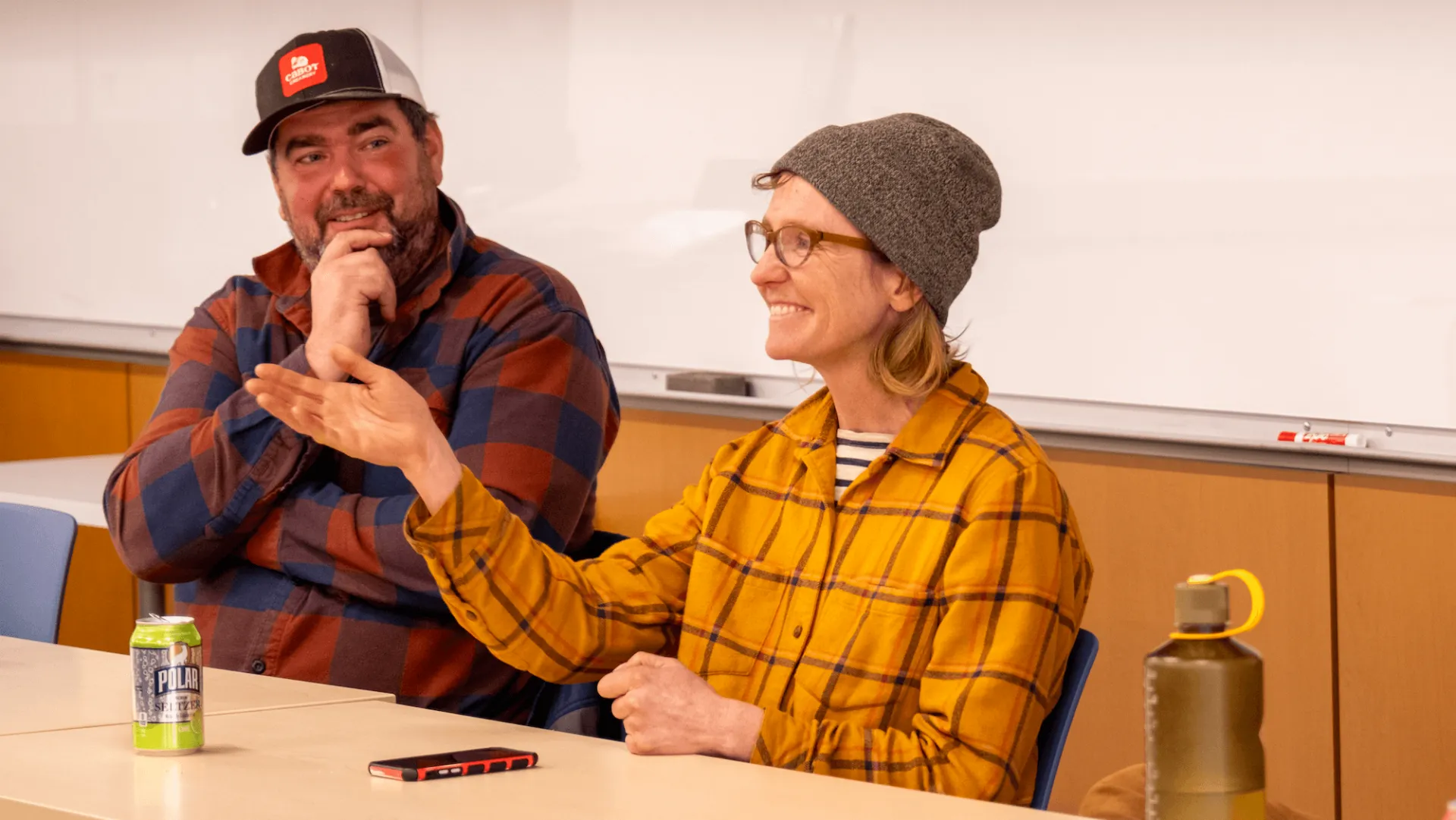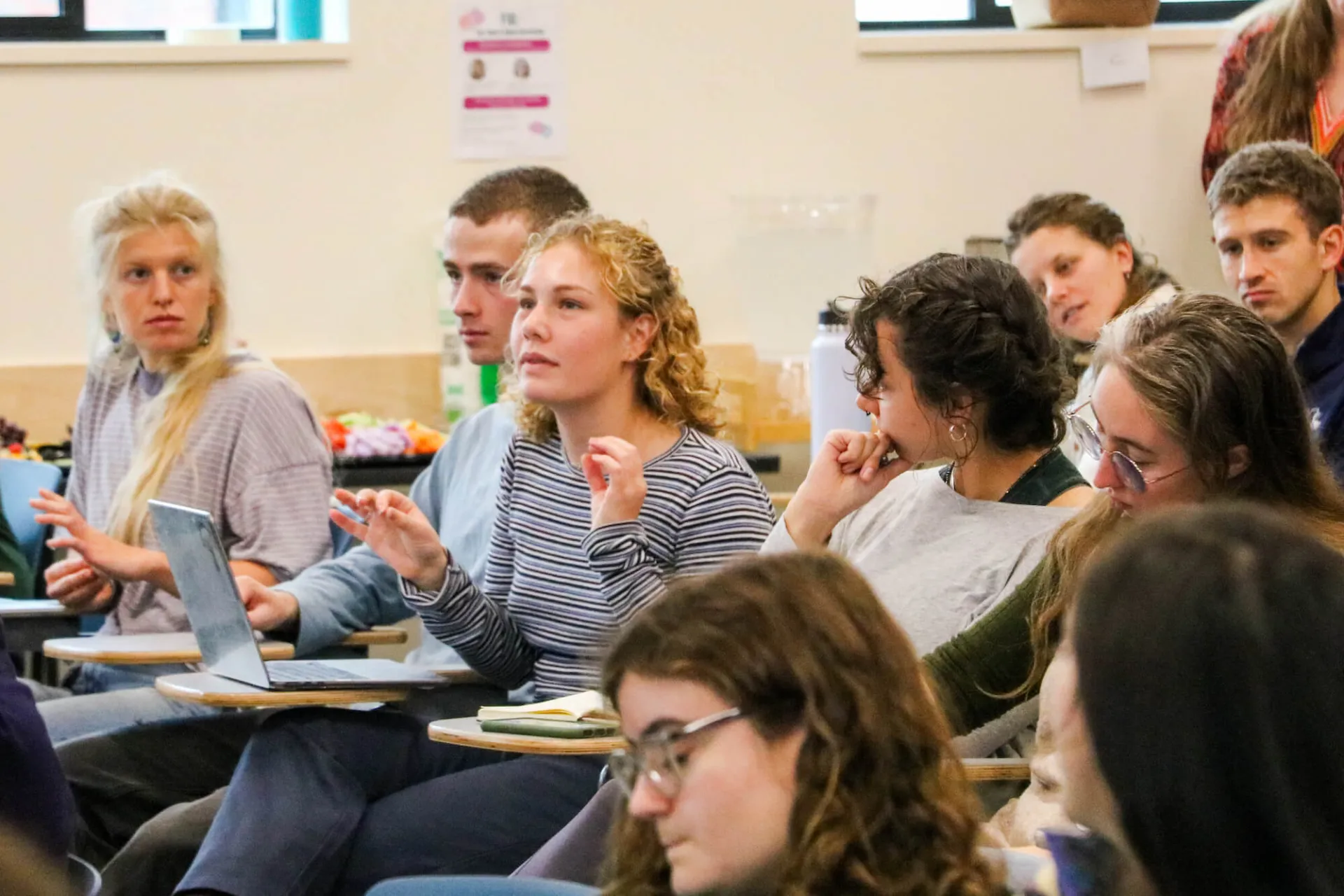The future of food includes lab grown meat. That’s according to UVM mechanical engineering professor Rachael Floreani, who is developing a scaffold to support the growth of cultivated meat. This process produces animal protein from a biopsy of a live animal, with the potential to eliminate the need to raise and slaughter livestock altogether.
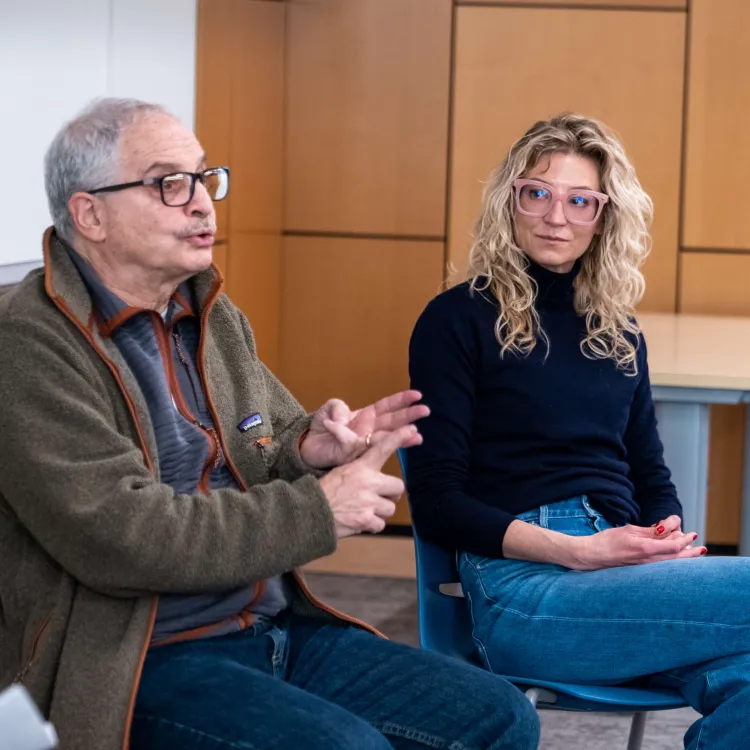
Floreani and her collaborator, Tufts University biomedical engineering professor David Kaplan, discussed their work at the latest Food and Ideas Gathering (FIG) seminar. Their conversation, moderated by UVM Food Systems M.S. candidate Kevin Markey and Mechanical Engineering Ph.D. candidate Chris Foley, explored the ethics, feasibility, and environmental impacts of cultivated meat in a climate-changed future.
Audience members questioned whether cultivated meat could be practical at scale. “Cultivated meat won’t change the system overnight,” Floreani acknowledged, but she envisioned a future where cruelty-free meat is widely available.
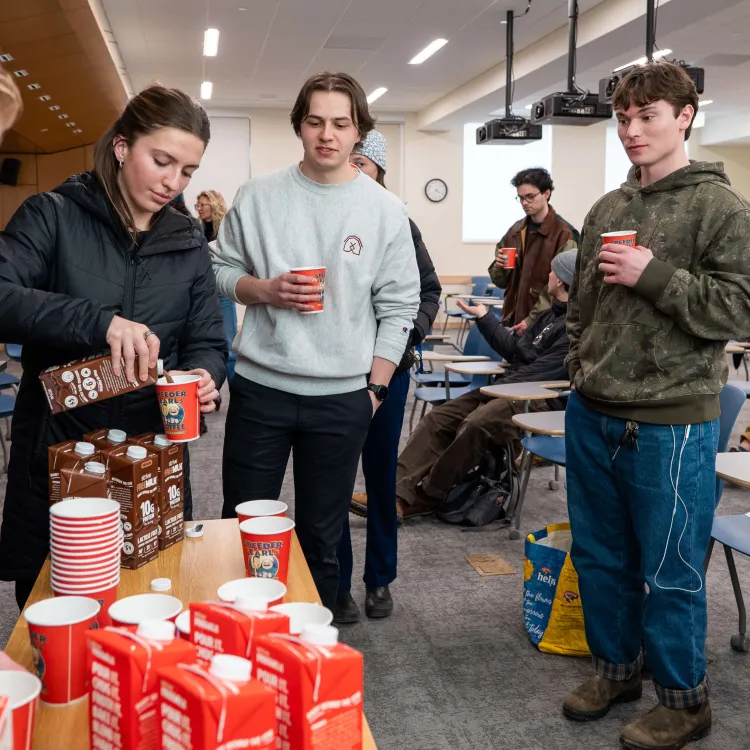
Attendees also had the chance to sample lab-cultivated milk—both plain and chocolate. Reactions were mixed, reflecting broader public perceptions of these emerging products.
“I’m an optimist,” Kaplan said. “I only see opportunities ahead.”
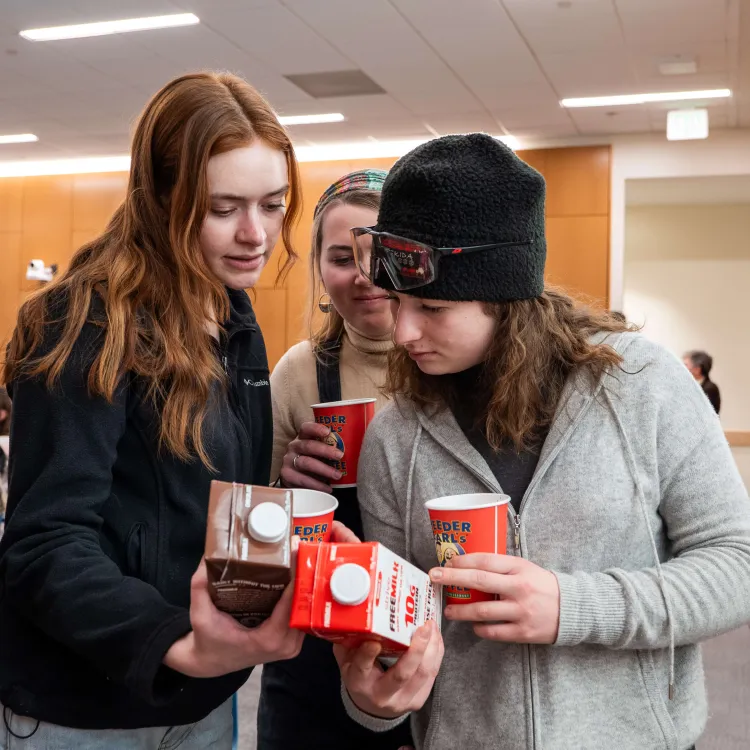
FIG is a monthly seminar series hosted by the Food Systems Research Center and the Food Systems Graduate Program to foster research collaboration, build community, and spark conversations about transdisciplinary food system solutions. Each semester explores a different theme—this spring, the focus is Alternative Proteins.
The next FIG seminar, “Alternative Proteins for a Changing Climate,” will take place on March 19 and feature UVM Food Systems Ph.D. students Alexis Yamashita and Patrick Shafer.
About the FSRC:
The UVM Food Systems Research Center (FSRC) is the first USDA-funded research center to study the interconnectedness of all parts of a regional food system, from farm practices to food access. They work to uncover solutions to pressing issues through the lens of food and farming. As pioneers in USDA-funded research, the FSRC is at the forefront of discovering how what’s on our plate affects our society and the planet.
